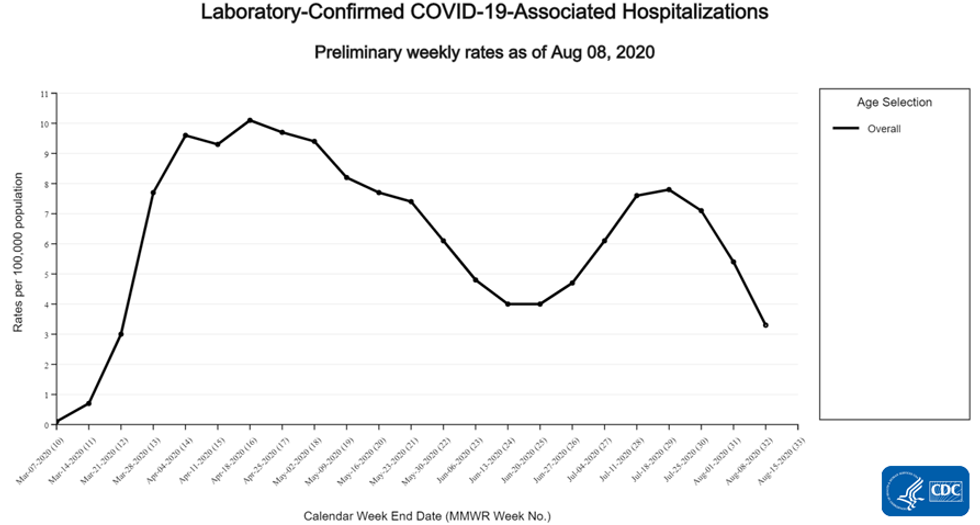New international study says coronavirus lockdowns not more effective than voluntary measures, not needed to slow the spread

A new international study examining the effectiveness of state-mandated coronavirus lockdowns compared to other voluntary pandemic safety measures found that the lockdowns were no better at stopping the spread of coronavirus than less restrictive measures, like social distancing or reducing travel.
The peer-reviewed study, which Newsweek reported was published on Jan. 5 in the Wiley Online Library, examined how the virus spread in 10 countries in early 2020.
The study examined virus cases in countries that used "non-pharmaceutical interventions" — the academic term for lockdown policies — to those that did not. Researchers examined cases from England, France, Germany, Iran, Italy, the Netherlands, Spain, and the United States, which all imposed lockdowns in early 2020, to two countries that decided to use less intrusive, voluntary social-distancing measures — South Korea and Sweden. The aim of the study was to examine whether policies that closed businesses and forced people to stay in their homes were as effective as less restrictive policies to contain the spread of the virus.
To calculate this, the authors of the study used a mathematical model that subtracted "the sum of non-pharmaceutical intervention (NPI) effects and epidemic dynamics in countries that did not enact more restrictive non-pharmaceutical interventions (mrNPIs) from the sum of NPI effects and epidemic dynamics in countries that did."
According to their analysis, "there is no evidence that more restrictive non-pharmaceutical interventions ('lockdowns') contributed substantially to bending the curve of new cases" in countries that imposed lockdowns.
While lockdown policies may provide some benefits that voluntary measures do not, the study found that these benefits are not significantly better, and the harms imposed by lockdowns, "including hunger, opioid-related overdoses, missed vaccinations, increase in non-COVID diseases from missed health services, domestic abuse, mental health and suicidality, as well as a host of economic consequences with health implications."
While the study found "no evidence of large anti-contagion effects from mandatory stay-at-home and business closure policies," the researchers did note some important limitations to the underlying data and methods used in their research. The authors acknowledged that cross-country comparisons are difficult because nations have different rules, cultures, and relationships between the government and the citizenry. Additionally, some countries are better at providing coronavirus data than others. The study also relied on confirmed case counts for its analysis, which can be "a noisy measure of disease transmission."
Given these limitations, the researchers could not conclusively declare that lock down policies had no benefits whatsoever. "However, even if they exist, these benefits may not match the numerous harms of these aggressive measures. More targeted public health interventions that more effectively reduce transmission may be important for future epidemic control without the harms of highly restrictive measures," the study concluded.
Lockdown policies in the United States are highly controversial, with advocates pointing to studies that claim they have saved millions of lives and detractors arguing experience shows places with less restrictive policies fared no worse than areas that were locked down.
Last June, Reuters reported a study published by researchers at Imperial College London that compared estimated coronavirus deaths in several European countries to the actual number of deaths recorded, claiming that some 3.1 million deaths were averted because of the imposition of lockdowns.
However, critics have accused early coronavirus models of overestimating the projected casualties of the virus. They point to states like Florida, which did not impose draconian lockdown policies and yet has fewer coronavirus deaths than states like New York that did lock down. In states with severe coronavirus restrictions like California, local business leaders have begun speaking out about the need to end lockdown policies, questioning their effectiveness.
Nationally, the Center Square reports that state-mandated lockdown policies have closed 19% of businesses, according to the Bureau of Labor Statistics based on private-sector data collected from July 20 to Sept. 30, 2020. Businesses in the state of Michigan have suffered most, with the BLS reporting 32% of the businesses there had to close at least temporarily because of government restrictions. Michigan was followed in business closures by Pennsylvania (30%); Washington (27%); Vermont, Hawaii, and New York (26%).
In the United States there have been 22,965,957 total cases and 383,351 total deaths reported to the CDC.









